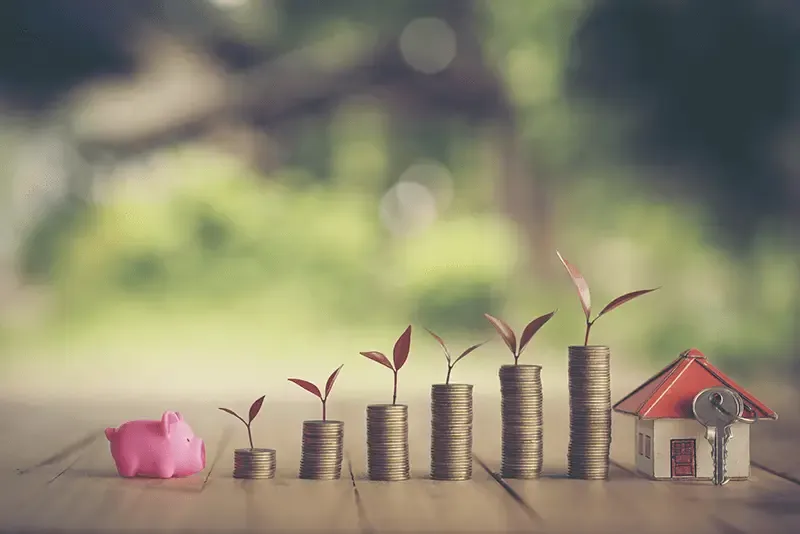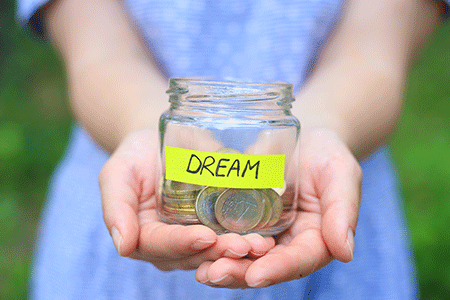How KiwiSaver can get you into your first home
By MAS Team | 14 April 2021
KiwiSaver was set up to help New Zealanders save for their retirement but it can also be used by first-home buyers to get onto the property ladder.
If you're planning to buy a place of your own at some point, here's what you need to know to get the most out of KiwiSaver.
If you're planning on buying a home in the future, the sooner you join KiwiSaver, the better. There are a couple of reasons it's smart to get signed up now.
Before you can use your KiwiSaver account to help buy your first home, you need to have been in KiwiSaver for at least three years. So it's a good idea to get signed up even if you don't think you'll be on the lookout for a house for a while. The last thing you need when you find the perfect place is to find you haven't been in KiwiSaver long enough to make a withdrawal.
The other reason to start your KiwiSaver account sooner rather than later is to make the most of contributions from your employers and the government. In addition to the money you put into your account, your employer is typically required to put in 3% of your salary and, if you contribute at least $1,042.86 a year, the government chips in another $521.43. So the longer you take to set up your account, the more of these extra contributions you'll potentially miss out on.
You also need to have been regularly contributing to be eligible for a First Home Grant – more on that below.

As we've said, you need to have been a member of KiwiSaver for three years to be eligible to withdraw money for your first home.
In addition, the house you're planning to buy must be in New Zealand, and you must be intending to live in the house yourself. That means you can't withdraw your money from KiwiSaver if you're buying an investment property.
Generally, the minimum deposit for a home loan is 20% of the property's value. You can use your KiwiSaver funds for part or all of your deposit, and you can withdraw almost all of your KiwiSaver – you need to leave $1,000 in your account (and any Australian-transferred funds).

Your KiwiSaver isn't a bank account – the money is invested on your behalf in a mix of shares, bonds, cash and property.
This means that your money is likely to grow faster than if it was saved in a traditional savings account, especially with interest rates as low as they are currently. But it does mean you need to pay attention to the fund your money is invested in.
KiwiSaver funds have different risk levels – ranging from conservative funds with lower risk and lower returns, to aggressive funds with higher risk but a higher potential return. The more aggressive the fund your money is in, the more chance there is of your fund going up and down. Choosing the right fund for you depends on a range of factors, including how soon you're likely to need to withdraw your money.
If you're planning on buying a house in the next couple of years, you should probably choose a more conservative fund, so you don't risk losing a significant amount of money if share markets slump.
Conversely, if you're not likely to need your money for a while, you should probably choose a more aggressive fund that is likely to fluctuate more but has the opportunity to return you more money over that period.
Either way, it's important you fully understand the different options and what's right for you. Your MAS adviser, or a financial advice provider, can help you select the best fund for your personal circumstances.

For some first home buyers, you may be eligible for extra help through Kāinga Ora's First Home Grant. The grant is worth up to $5,000 if you're buying an existing home and up to $10,000 if you purchase, or are going to build, a new home.
Even better, you can combine grants so that if you qualify for the grant and so does your partner, you may be eligible for up to double the amounts above.
To qualify for the grant, you need to:
To find out more check out the Kāinga Ora website.
Once you've bought your first home, your KiwiSaver becomes a retirement savings account. This is usually a good time to think about whether it's worth changing your KiwiSaver account into a different fund.
If you're not going to be retiring for a while, you might want to think about choosing a more aggressive fund to make sure your money is getting the opportunity for the best returns possible over time. If you forget to do this, and you keep your KiwiSaver account invested in a conservative fund, you might miss out on possible returns that would otherwise help fund your retirement.
Remember, though, that each fund has a different level of risk and it's always important to get financial advice about what's right for you.

31 July 2019
Buying your first home can be a daunting prospect but with the right tips and tricks in your pocket, getting your foot in the door needn't be that hard at all.

27 July 2020
Whatever your saving goal is, here are the ins, outs and need-to-knows so you can get your nest egg sorted with KiwiSaver.

31 March 2021
If you've just landed your first job, retirement can seem a long way off. You might not have a lot of spare cash at the moment but the sooner you start contributing to your retirement the better. Here's a few tips to help you navigate KiwiSaver.